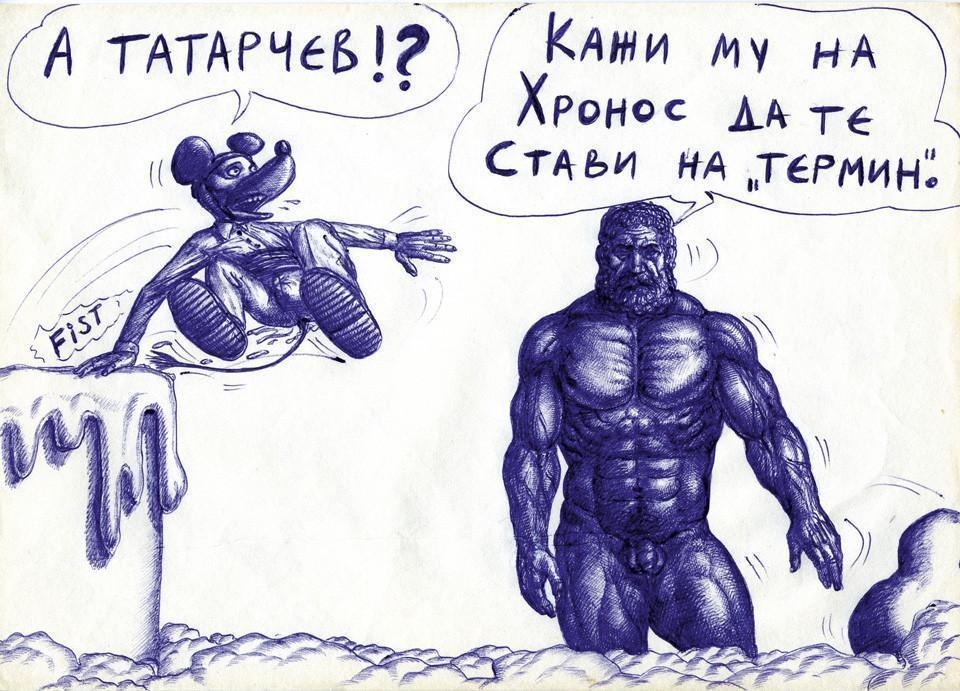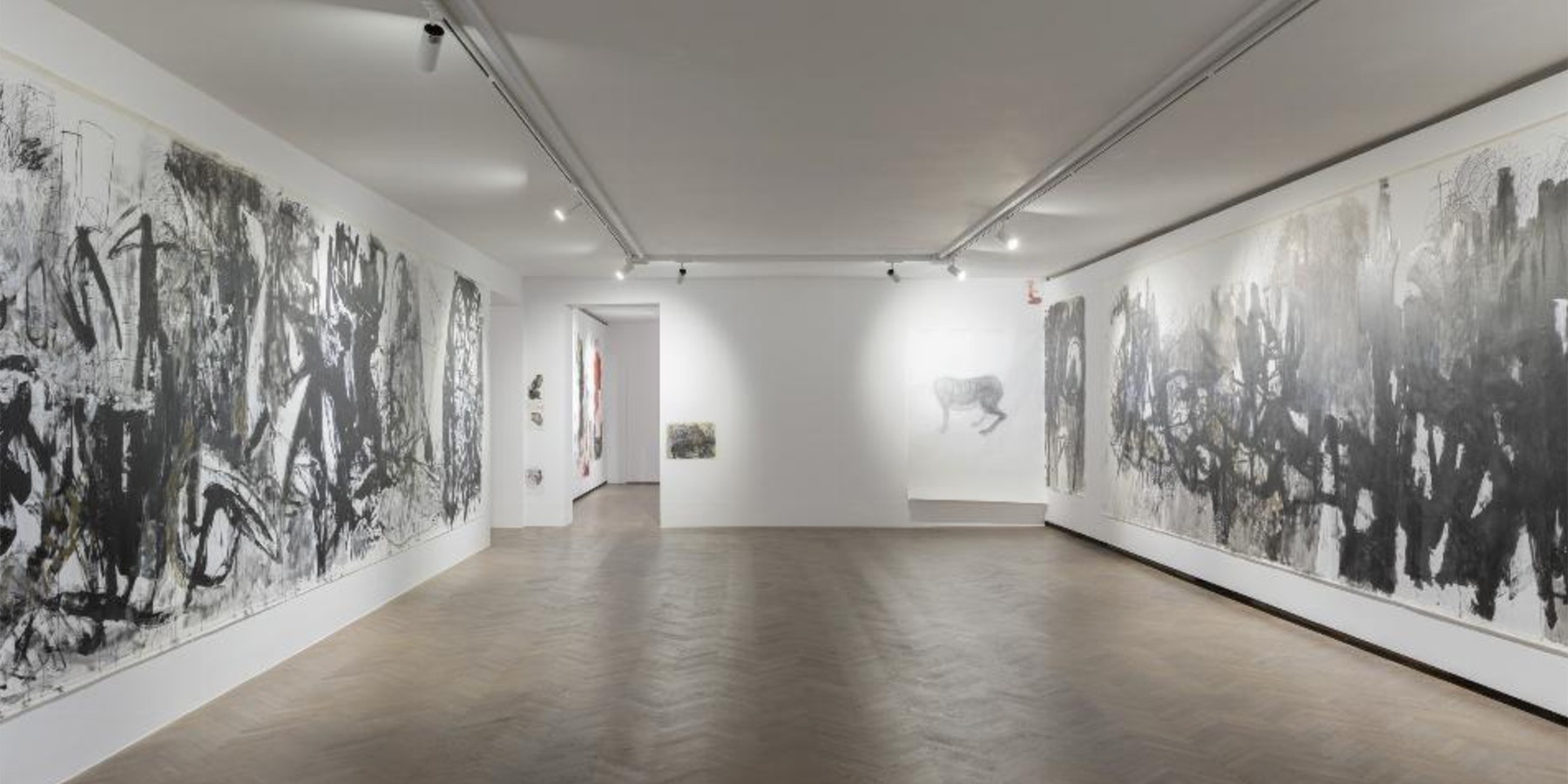Aleksandar Stankowski
Minorities of Reality
Aleksandar Stankoski
15 drawings from the series Minorities of Reality, 1998–2000
ballpoint pen on paper, 21 × 29.7 cm
Collection II of the Arsenal Gallery in Białystok. Work purchased by the Podlaskie Association for the Promotion of Fine Arts

For Aleksandar Stankoski, one current of the artistic quest has been embedded in an analysis of social, political, historical, and cultural phenomena conditioning life in contemporary Macedonia. The artist is known for his involved and highly critical comments on the realities of the former Yugoslavia and the current politics of Macedonia, specifically with regard to its efforts to join NATO and the European Union. Stankoski develops his artistic commentary in, i.a., four series of drawings: Labris (1989–1992), Unidentified, Minorities of Reality, and Fun (2000–2012). Each narrative includes several hundred drawings. The artist uses a ballpoint pen on paper, managing the technique masterfully: precise in chiaroscuro images, he highlights the solidity of forms and all details, achieving an effect in the semblance of the brutal realism typical of dystopic comic books and science fiction games.
Kolekcja II includes works from two series: Unidentified, and Minorities of Reality. In the former, the artist contemplates communism and Nazism. Stalin and Hitler, personifying their respective totalitarian systems, spar in a boxing match. Their surrealist fracas juxtaposes ideologies which had impacted the history of the world as well as that of the Balkan community of Macedonians. All works forming part of the latter series, Minorities of Reality, focus on issues of the mass media, illusionary freedom of speech, and of manipulation present in media communication.
Yane Calovski interprets Stankoski’s drawings in the context of satirical reflections on the painful experience of system change, economic and political consequences of communism, and the scarring left by the system on Macedonian identity. The artist blends in a variety of cultural references, quoting from ancient tradition (heroes of antiquity can be found among narrative protagonists), political history and philosophy (Hristo Tatarchev, co-founder of the Macedonian freedom movement, is mentioned in dialogue, as is Immanuel Kant), vulgar eroticism as well as schematic characters and images of popular culture.
Izabela Kopania
translated from Polish by Aleksandra Sobczak

PLAN YOUR VISIT
Opening times:
Thuesday – Sunday
10:00-18:00
Last admission
to exhibition is at:
17.30